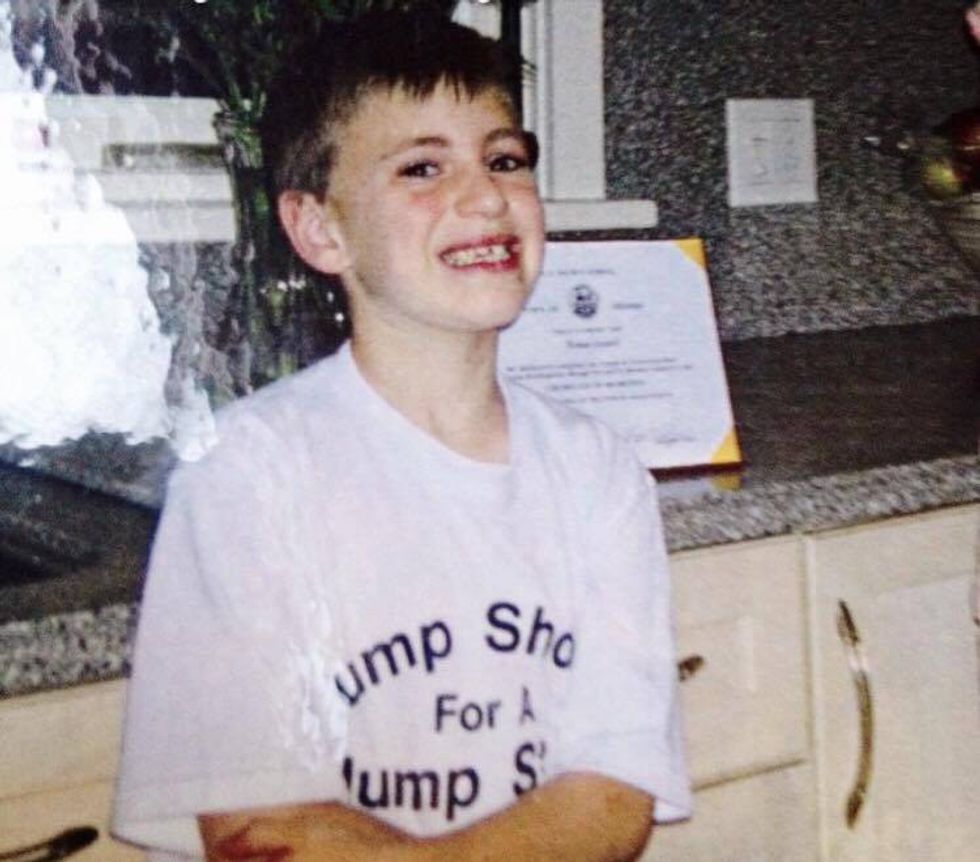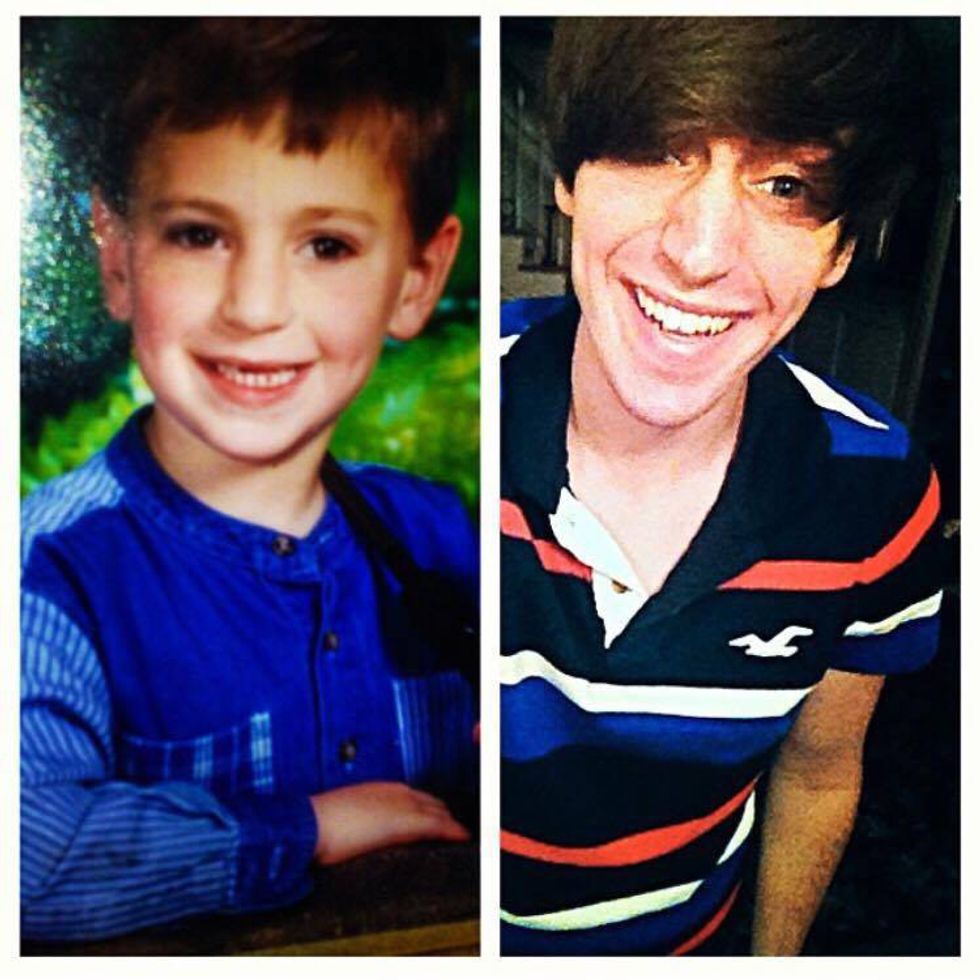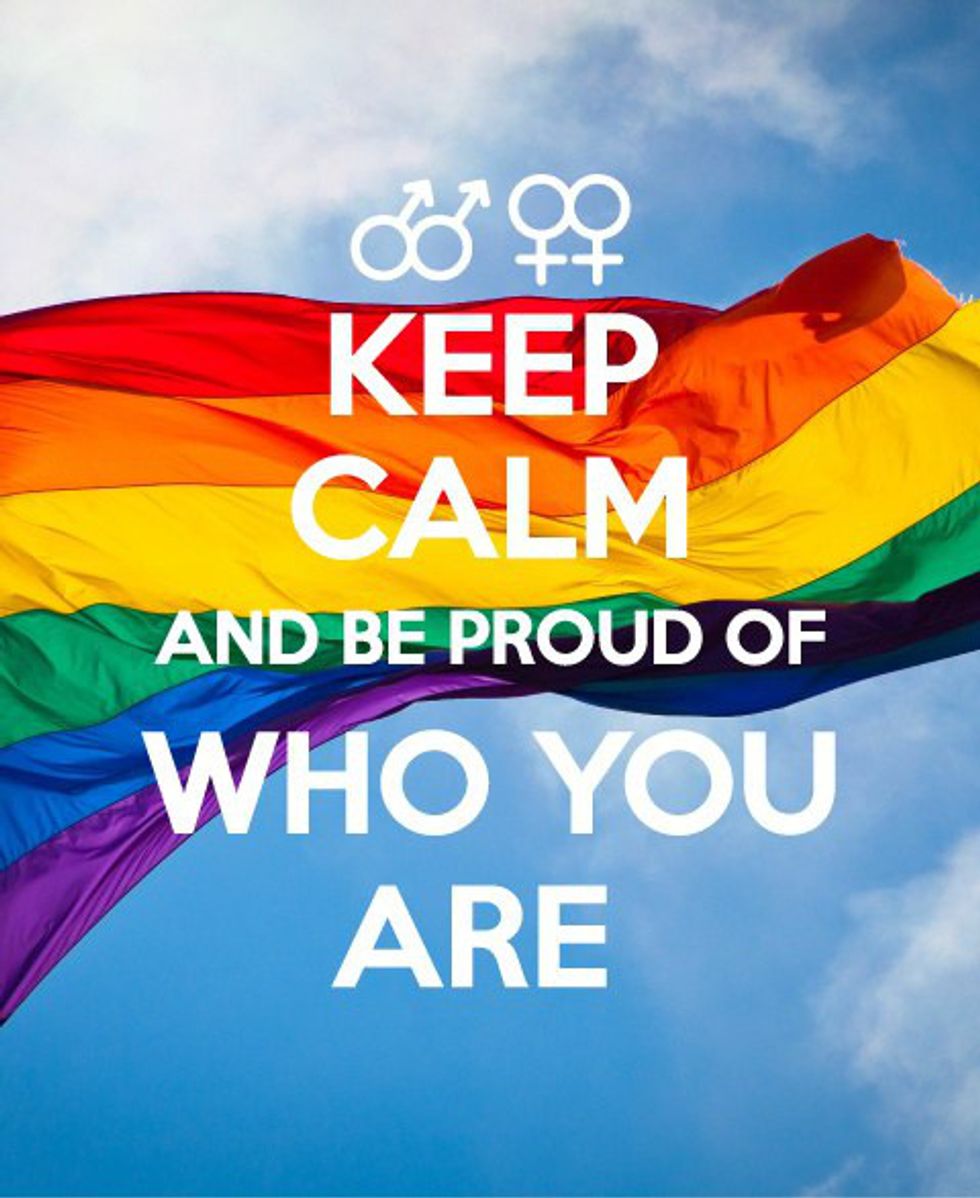Time will tell you that the LGBTQ community has come a long way over the years, and that's true. Same sex marriage is now legal across the USA thanks to the Supreme Court, that is true as well. Pride festivals with huge turnouts to celebrate self acceptance and love of the community gain more attendants each year, also true. Youth pride groups are common in even small towns and public schools to help keep youngsters questioning their sexuality or sexual orientation in a unified group that will support them for who they are, true. That is something to celebrate, yes! Coming from someone who is openly gay, I can attest that there is still hate out there though, and the growing ratio of accepting versus not accepting someone who is a part of the LGBTQ community is only a start towards fully finding peace with the issues the group faces.
Growing up hiding from who you are and convincing yourself that there is just something inherently wrong with your identity at baseline, combined with additional shame or guilt you face for acting "gay" or being called "faggot" by your peers on your way to and from school; Your capability of seeing things, including yourself, in a positive outlet is negatively effected. It is not easy to just come out, and be friends with yourself after denying yourself and hiding from specifically that all your life. Getting through K-12 is hard enough for everyone already, you learn a lot about yourself and your social status is a priority for you, whether you say it is or not. Adding the struggles of growing up gay just adds a whole other element of difficulty to your social, emotional, and sexual development. Thinking back to the physical and verbal abuse, bullying, and segregation I faced over the years I realize how important it is that strides are being made to further the safety and well-being of those who identify as LGBTQ.
In the small town of Swansea, Massachusetts where I grew up I lived within the same neighborhood, also right next to, many boys who were 3-5 years older than I had been. When I first moved in at the age of 6 I was really pleased to find out my new neighbors weren't opposed to spending time with someone younger, and I took the opportunity to join in on what I assumed would be fun games of rock collecting and freeze tag. There was mild teasing about how my voice was a bit higher, or how I liked to play with dolls, and sometimes they would never come back after hours of searching when it was my turn to count during hide and seek. This was manageable for me in my first year or so of living in Swansea, I was able to dust it off like a scrape to the knee. Progressively over the years the insults were accompanied with threats, physical punches and kicks to the face or body, stealing of property, and assigning blame to me to their parents when they went out to smoke, shoplift, or do other things I didn't know much about.
One summer evening after my father had fed the bullies willingly with burgers and hot dogs, I came home with blood running from my scalp to my chin from being thrown against the metal legs of a trampoline. That's when we first called the police to report the violence and ongoing bullying I'd been subject to. There wasn't much they could do, they said, and I don't think it helped my case that their elder sister was a respectable member of the police force, and that their parents were well liked in the area... After the second attack on me on my way home from school, we called the police again and from that point on it was agreed that they would keep their distance, and I would keep mine. This doesn't delve into all the maltreatment I was given while in school by those my own age, and even younger than I. There are still many steps necessary to create a safer environment for children like me, and as a society we can all make an effort to crush the stigma of LGBTQ not being OK.
Acknowledging that the community still is not at a comfortable place in terms of social stigmas, violent attacks, and bullying is one important step to getting closer to the ideal of safety among our LGBTQ friends. Hate crimes exist. Sexual orientation is creeping up on race as the largest victimized group involved in hate crimes, and it's been estimated that this number will continue growing, as it has been for the last decade. The reality is that although the LGBTQ rights seem to be expanding and there is a larger amount of support and acceptance in our country, the statistics of violence are growing along with that. According to the FBI's latest analytics on hate crimes and violence, gay men and lesbians are twice as more likely to be targeted, and transgender individuals are six times as more likely to be. In fact, 2015 was the highest recorded year of violence, hate crimes, suicide, and murder effecting the LGBTQ community; And with the mass shooting at the gay friendly Pulse night club in Orlando, Florida I am sure this statistic will only continue to increase. It's actually scary to think about.
With the prevalence of so much violence directed towards this community, it's no wonder youngsters are still struggling with the concept of coming to terms with their sexuality and vocalizing a part of their sexual identity. Not only is the obvious and direct grief related to each offense on the community something to be aware of, but the underlying effects that it has on children who affiliate being gay with something negative or dangerous is too. Aggression and hate surrounding gay individuals on a large scale such as a mass shooting ultimately creates a social dynamic on a smaller scale like the playground at school, in the bus on your way home from practice, in the work place, etc. This is because associating being attacked or maligned with the LGBTQ community has one major negative impact: It reinforces the idea that being gay is bad or wrong for anyone who may be within the same social circle, or anyone who is directly challenged, with accepting their sexuality/sexual orientation. Eliminating this assumption about being in the LGBTQ community, especially for young children, is in my personal belief what is most important.
On a lighter note, anyone and everyone can make a positive contribution to this prejudice against us gays. Like when raising your children, maybe telling them about what it means to be gay and emphasizing that it is not a negative thing -- so that way when they discover it later on in life, they aren't confused and uncomfortable about it without someone there to answer questions or alleviate stress that may be created from learning about LGBTQ. Or even if they decide they are gay themselves in the future, it makes it easier to come out knowing you will be loved regardless of the gender of the person you decide to love. Attending pride celebrations, donating to local charities for LGBTQ, and being accepting and open to those around you who decide or express they are gay (even if you do not know them) are all small ways that make a big impact on the community as a whole.
























